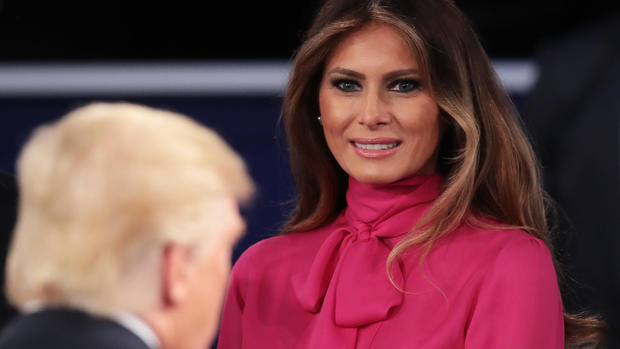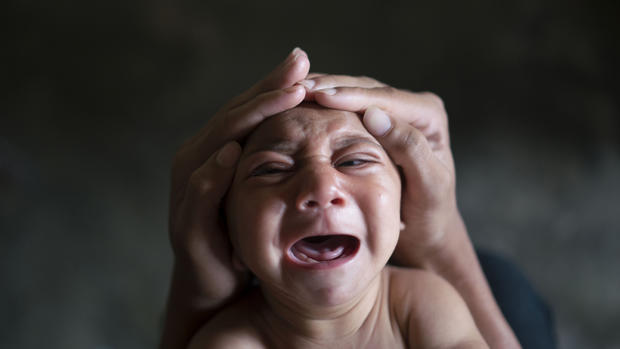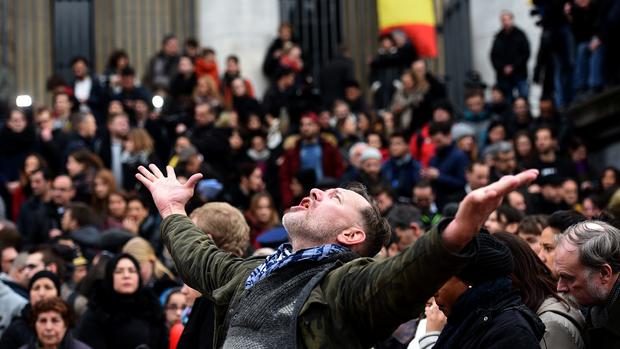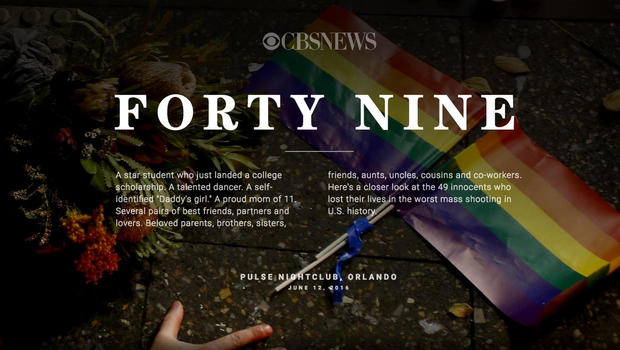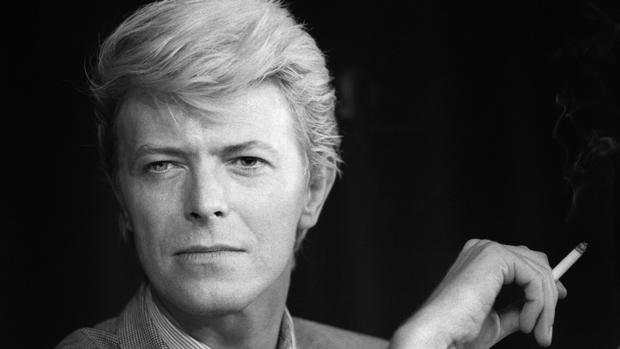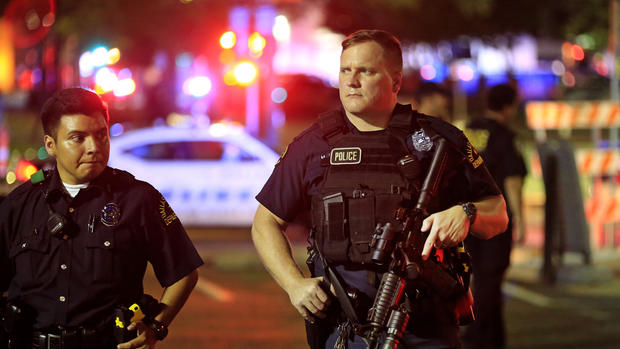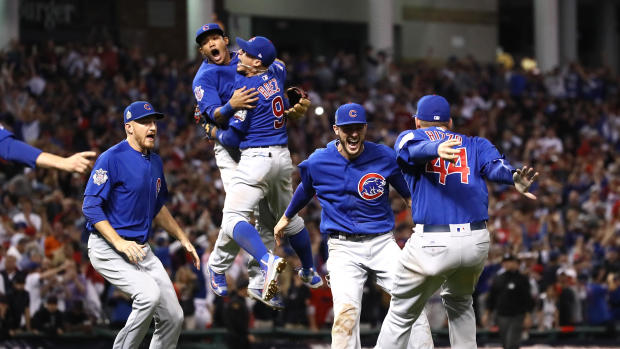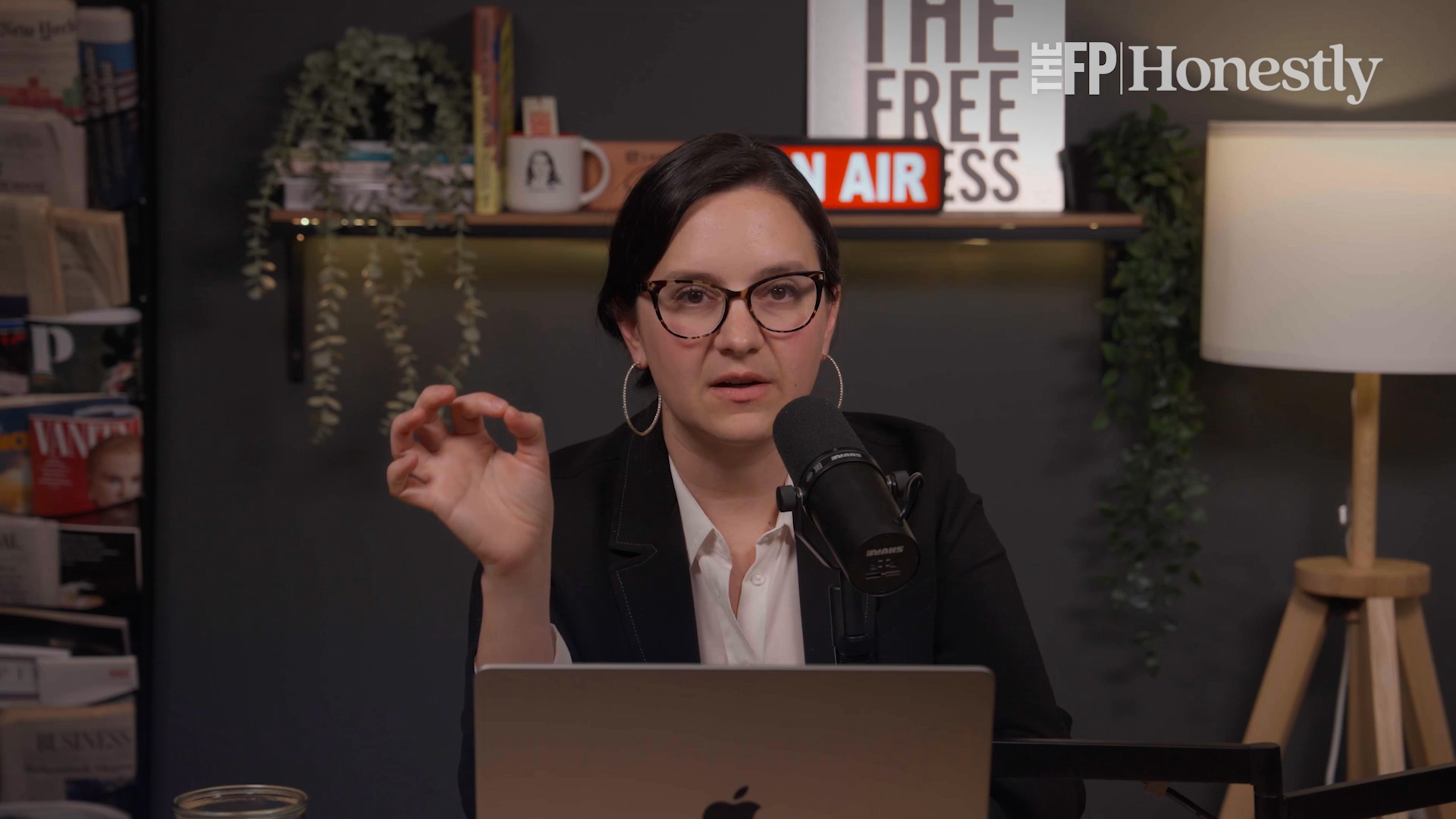16 stories that defined 2016
It’s nearly impossible to sum up the year 2016 with a single word, phrase, or story. Dominated by political coverage and consumed with tragedy, there’s little doubt that events of this year will go down in history for having a lasting impact on millions of people.
Here are 16 stories that unfolded in 2016 which will surely reverberate into 2017 and far beyond.
1. U.S. presidential election
The narrative of the 2016 election seemed to set the tone for the entire year. Donald Trump’s surprising win came at the end of a long, bitter campaign where both sides flung accusations of sexism, racism, lies, cover-ups, illegal activity, and even sexual assault.
The country saw for the first time a political candidate who could change the entire conversation with a tap of his thumb and a tweet. And we saw our first female nominee of a major political party, Hillary Clinton.
But it was the “October surprises” that ultimately came to dominate the story of the 2016 election. Trump’s came in the form of a leaked “Access Hollywood” tape, more than a decade old, in which he described groping women in offensive detail. Clinton’s was a letter from FBI director James Comey to Congress updating the status of an investigation into her email server that didn’t result in charges but never quite disappeared. Both story lines exemplify the dark clouds that hovered over each candidate throughout the race.
Now, Americans are buckling up for the political roller-coaster ride that’s likely to last for the next four years.
2. Russian hacking
The hacking of the Democratic National Committee before the convention in July was a game-changer that rocked the presidential race. The following email leaks exposed damaging and embarrassing information on the Democrats, creating a major headache for the Clinton campaign.
But it increasingly became clear that the larger story was that the hack revealed America’s vulnerabilities to countries like Russia. U.S. intelligence officials said the attack had Russian “fingerprints,” and as the investigation progressed their confidence grew that Russia was directly involved with the intent of influencing the election. Most recently, officials said they believe Russian President Vladimir Putin himself ordered the hack. Although Donald Trump disputed Russia’s role, senators from both parties have called for an investigation that will keep making headlines in the new year.
3. Syrian civil war
The brutal war in Syria is nearing its six-year mark, with no end in sight for the violence that has already killed more than 400,000 people and driven nearly five million from their homes.
Several cease-fire deals were made this year, including one agreed to in mid-December just after Syrian government forces claimed the hard-hit city of Aleppo, but in many cases they failed to protect vulnerable civilians.
The realities of war were exposed through heartbreaking photos, videos, and even a Twitter account belonging to a 7-year-old girl and her mother. Among the most searing images of the year was one of a 5-year-old boy just after an airstrike, bloodied and ashen-faced with a blank stare in the back of an ambulance. He is just one of many innocent children who have known nothing but war their entire lives.
4. Brexit
The U.S. election wasn’t the first shocking vote of 2016. In June, the United Kingdom voted to leave the European Union in a move nicknamed “Brexit.” After months of bitter campaigning, the result sent Britain’s prime minister packing and caused economic panic across the globe. The leaders of the “Leave” movement campaigned on the idea that, among other things, the U.K. could have tighter control of its borders without the E.U., while “Remain” supporters mostly argued that leaving would be an economic disaster for Britain. Now the country’s new prime minister plans to move forward with Brexit negotiations, and the official break could happen as early as 2019.
5. Zika outbreak
Mosquitoes were public enemy number one in many parts of the world this year due to their role in spreading the Zika virus.
Brazil was the epicenter of the outbreak, where thousands of babies were born with Zika-related microcephaly, or a small head and under-developed brain. That’s just one terrifying result linked to the virus, and it seemed researchers learned more each day throughout the year. The virus has also been linked to miscarriages and a neurological condition called Guillain-Barré syndrome, which can cause paralysis. Although the World Health Organization said in November the virus is no longer a “global health emergency,” Zika continues to spread, with locally transmitted cases reported in Florida and Texas for the first time in recent months.
6. Flint, Michigan water crisis
President Obama declared a state of emergency in response to the Flint water disaster on January 16, 2016. That was a little less than two years after the local government switched the city’s water source to the Flint River, causing an unprecedented public health crisis which officials were slow to recognize. The resulting corrosion of the water pipes meant the residents of Flint, many of them poor and a majority black, were drinking lead-contaminated water day after day. When Obama approved FEMA aid, at least 100 children had already tested with high lead levels in Flint, and many more cases were feared. Lead poisoning can permanently and severely affect mental and physical development, according to the Mayo Clinic, and is especially harmful to children and pregnant women.
7. Terror attacks around the world
The year was punctuated by horrific attacks like the January siege by al Qaeda-linked militants on a popular tourist hotel in Burkina Faso, in West Africa, that left nearly 30 people dead, and a deadly bombing at the Brussels airport in Belgium that killed 32 in March. A terror cell involved in 2015’s Paris attack was found to be behind the Brussels plot.
Suicide bombers linked to ISIS targeted the Istanbul airport in a similar attack just three months later, killing more than 40. Then in July, an attacker killed 86 people when he drove a large truck through a crowd celebrating France’s Bastille Day in Nice. And in December, at least 12 died when a hijacked truck slammed into a popular Christmas market in Berlin. The suspect, a migrant believed to have ties to ISIS, fled, sparking a manhunt across Europe.
8. Pulse nightclub shooting
In the midst of pride celebrations across the country, the worst mass shooting in modern U.S. history targeted the very group that should have been celebrating. A lone gunman entered Pulse, a gay nightclub in Orlando, just after last call on Latin night on June 12, 2016. For several hours, he terrorized club-goers as he gunned down 49 of them while holding off police just outside. The attack left the LGBTQ community feeling raw and unsafe in a space that was meant to be their haven.
Americans from all walks of life responded by donating blood, offering shelter, and providing comfort and support for those devastated by the massacre.
9. Deaths of iconic figures
2016 felt especially cruel as the losses of major cultural icons built up in a steady stream throughout the year — so many that it would be daunting to list them all here.
From musical game-changers like David Bowie and Prince, to beloved actors Alan Rickman and Gene Wilder, to The Greatest, Muhammad Ali, America seemed to be in a constant state of mourning over our treasured figures.
The deaths of political giants like Supreme Court Justice Antonin Scalia and former first lady Nancy Reagan left no facet of American culture untouched by a devastating loss this year.
10. America’s opioid crisis
Prince’s death was a high-profile chapter in the opioid addiction epidemic plaguing the U.S. that has dramatically increased in recent years. According to the Department of Health and Human services, 78 people die every day in this country from an opioid-related overdose, whether it be prescription drugs or heroin. Several gut-wrenching videos and photos went viral this year of users near death in public places, sometimes with children involved. In March, President Obama called the crisis is as great a threat as terrorism.
11. Police shootings caught on video
Two black men were shot and killed by police in two days in early July, and in both cases video of the incidents went viral, escalating tensions between the black community and law enforcement.
Alton Sterling was killed in Baton Rouge after an altercation with officers outside of a liquor store, and the very next day Philando Castile was shot 7 times in his car after a Minnesota officer pulled him over for a busted taillight. His girlfriend, who was in the car along with her 4-year-old daughter, broadcast the aftermath on Facebook Live. The raw, emotional content of her video was widely shared on social media as many people questioned how the shooting could have happened. The officer has since been charged with manslaughter.
The shootings re-ignited a national conversation about race, policing, and how to bridge the deep divide often exposed between the two.
12. Police officers ambushed in Dallas and Baton Rouge
Just days after the deaths of Sterling and Castile, a sniper angry over their shootings targeted and shot 12 Dallas police officers who were protecting a peaceful protest. Five officers were killed, and the country struggled with grief over such senseless violence.
“We ask police to do too much and we ask too little of ourselves,” President Obama said at the funeral for the Dallas officers, imploring Americans to come together in unity.
But just 10 days later, it happened again: an attacker gunned down three officers in Baton Rouge. In both cases, the gunmen were killed by police and were believed to have acted alone.
13. Sexual assault sentencing outrage
When convicted rapist and ex-Stanford swimmer Brock Turner was sentenced to just six months in jail, the nationwide outcry was loud and clear. But it was his victim’s impassioned letter to the court, published in full online, that opened up the conversation on sexual assault and the nature of consent in America, especially on college campuses. Many pointed to Turner’s light sentencing, and the judge’s reasoning that he did not want jail to have a negative impact on Turner’s future, as a reason why victims often are afraid to come forward. The woman’s letter also called out Turner’s lawyers for citing her drinking as part of their defense. Critics say this kind of narrative suggests victims “ask for it” or should be held partly responsible when an assault takes place.
14. Ryan Lochte’s lie heard ’round the world
Olympic swimmer Ryan Lochte found himself in hot water after fibbing about being robbed at gunpoint during the 2016 Rio Games. Turned out, he and some younger teammates had actually just been asked to pay for damage they caused while drunk at a gas station. While some people shrugged them off as “drunk kids” who “made a mistake,” others pointed to the larger issue of privilege, saying the 32-year-old Lochte felt it was OK to lie on a national stage. His story infuriated Brazil because the country had already gone to great lengths to prove it was prepared to safely host the Olympics, and the unwelcome distraction wasted time and resources. Lochte ultimately bounced back with a spot on ABC’s “Dancing with the Stars.” Meanwhile, U.S. women’s soccer star Hope Solo had her contract terminated after she said her Swedish opponents played like “cowards” in an Olympic match.
15. Major sports milestones
It was the year of the underdog in the baseball and basketball worlds. First, the Cleveland Cavaliers came back from a 3-1 deficit in the NBA finals against the Golden State Warriors to win their city’s first professional sports championship in more than 50 years. Even more unbelievable was who they beat — the Warriors were being lauded as the best team in history after winning a record 73 games in a single season.
Then in November, the Chicago Cubs broke a 108-year curse by winning the World Series against the Cleveland Indians in heart-stopping fashion. Their victory in extra innings in Game 7 kept millions of fans on the edge of their seats.
It was the first time the Cubs had even made it to the World Series since 1945.
16. Fake news and post-truth
Fake news ran rampant on social media throughout the presidential election, and was sometimes even shared by political candidates. But it wasn’t until after the election that Facebook made the decision to crack down on it.
Fake news sites often masquerade as legitimate sources, and they target the ultra-conservative and liberal corners of the internet. People tend to read and share stories that confirm their own biases, but don’t always fact-check the information.
Such stories have already proven to have dangerous consequences in real life. The outlandish “Pizzagate” conspiracy theory spread among users on Reddit and ended with a gunman opening fire in a D.C. pizza restaurant.
So it should come as no surprise that Oxford Dictionaries named “post-truth” the word of the year for 2016. It’s defined as “circumstances in which objective facts are less influential in shaping public opinion than appeals to emotion and personal belief.”
